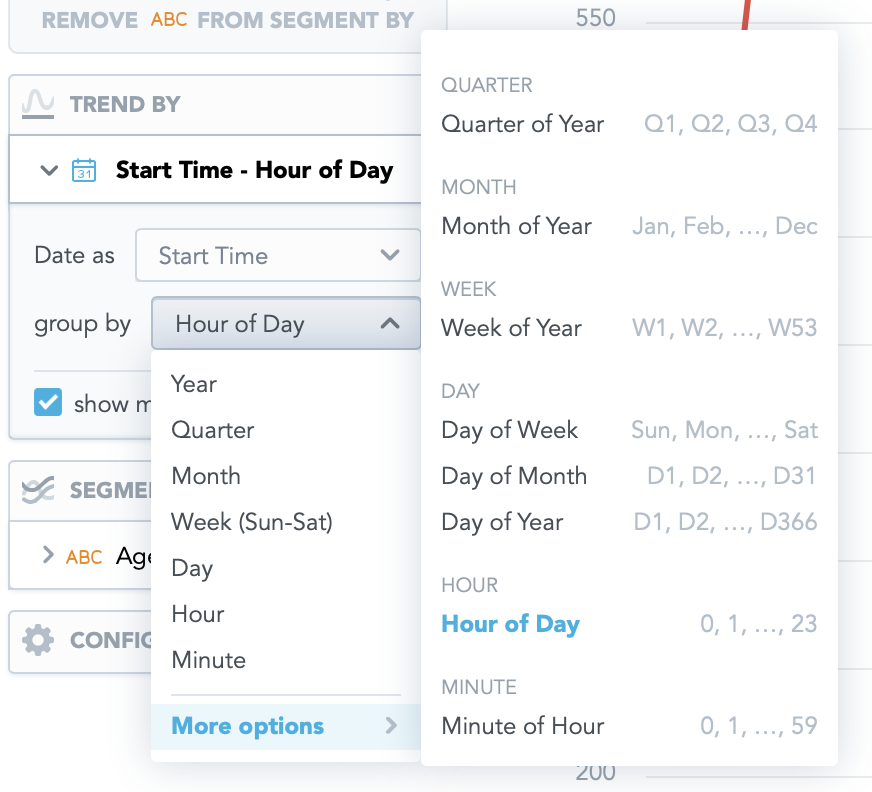Dates and Times
Data sets in Logical Model reference several different time attributes. Every time attribute has one-minute granularity, unlike metrics that have second-level precision.
| Date and Time | Description and Usage |
|---|---|
| Conversation Start Time | The time when the entire conversation started. The conversation started time is the same for every engagement related to that conversation. A conversation start time is available for all engagements that are part of a conversation. |
| End Time | The time when the engagement ended including the wrap-up phase if the wrap-up happened after the engagement with the customer. If the engagement is still in progress the end time is not available for that engagement. |
| Interval Time | The time into which an agent activity is attributed. |
| Review Time | The time when a review was completed - the answer was provided. |
| Start Time | Time when an engagement started. Every engagement that we report on has a start time. The exact meaning of Start Time depends on Engagement Type. For Agent Engagements the start time represents the time when an agent started to be occupied by handling the customer which is either the time when agent and customer connected or the time when agent started to prepare for the engagement. |
Segment by Date and Time
note
All reporting is done in an account-wide timezone. For changing the time zone for your account, please contact us.
You can use date and times to segment data in insights to show metric values for all the individual time frames. All date and times are in the calendar year.

These segmentation options are possible, sorted from the longest time periods to the most granular:
- Year
- Quarter
- Month
- Week
- Day
- Hour
- Minute
Click More options to see additional options:
- Quarter of Year
- Month of Year
- Week of Year
- Day of Week
- Day of Month
- Day of Year
- Hour of Day
- Minute of Hour
note
You can use the the same level of segmentation when creating custom metrics.